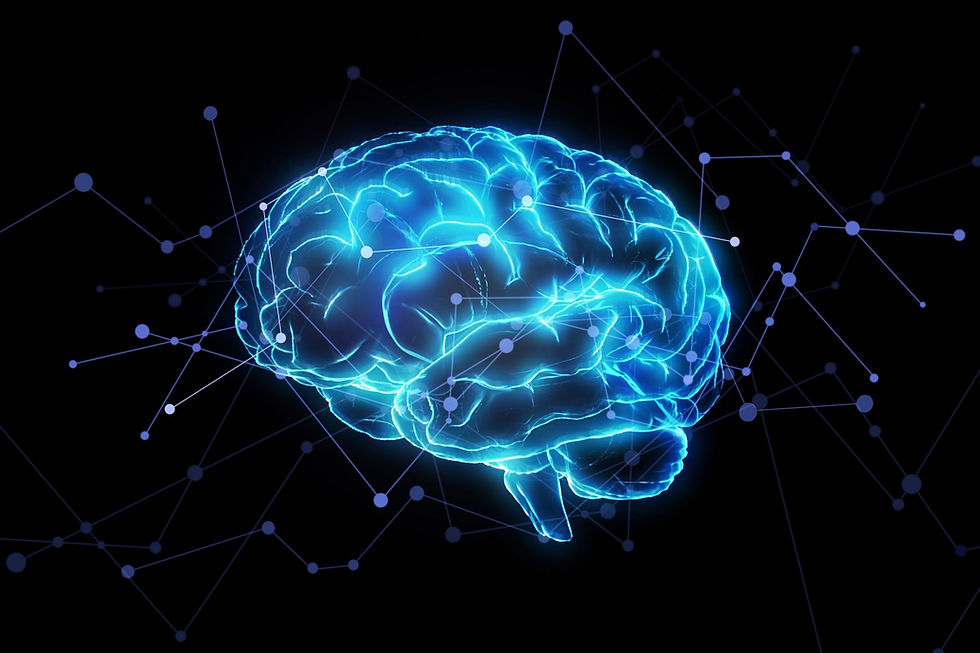SCIENTISTS MAY HAVE FINALLY FIGURED OUT HOW TO REVERSE AGING IN THE BRAIN
- skloucherepierre
- Jan 31, 2021
- 4 min read
Updated: Apr 5, 2021

THE AGING GLOBAL POPULATION is the best test looked by 21st-century medical services frameworks. Indeed, even COVID-19 is, one might say, a sickness of maturing.
The danger of death from the infection generally copies for like clockwork of life, an example that is practically indistinguishable from a large group of different sicknesses. Yet, for what reason are elderly individuals powerless against such countless various things?
Incidentally, a significant sign of the maturing cycle in numerous well evolved creatures is irritation. By that, I don't mean extreme nearby reaction we commonly partner with a tainted injury, yet a poor quality, granulating, incendiary foundation clamor that develops stronger the more we live. This "inflammaging" has been appeared to add to the advancement of atherosclerosis (the development of fat in supply routes), diabetes, hypertension , slightness, malignant growth and intellectual decay.
Presently another examination distributed in Nature uncovers that microglia — a sort of white platelets found in the mind — are amazingly powerless against changes in the levels of a significant fiery particle called prostaglandin E2(PGE2). The group found that openness to this atom severely influenced the capacity of microglia and related cells to create energy and do ordinary cell measures.
Luckily, the specialists found that these impacts happened simply because of PGE2's cooperation with one explicit receptor on the microglia. By disturbing it, they had the option to standardize cell energy creation and decrease cerebrum aggravation. The outcome was improved discernment in matured mice. This offers trust that the psychological disability related with becoming more established is a transient state we can conceivably fix, instead of the inescapable outcome of maturing of the cerebrum.
Switching COGNITIVE DECLINE
Levels of PGE2 increment as vertebrates age for an assortment of reasons — one of which is most likely the expanding number of cells in various tissues entering a state named cell senescence. This implies they become broken and can make harm tissue by delivering PGE2 and other incendiary atoms.
Macrophage cell.Kateryna Kon/Shutterstock
Yet, the specialists additionally found that macrophages — another kind of white platelets identified with microglia — from individuals beyond 65 years old made altogether more PGE2 than those from youngsters. Intriguingly, uncovering these white platelets to PGE2 smothered the capacity of their mitochondria — the closest thing a phone needs to batteries — to work. This implied that the whole example of energy age and cell conduct was upset.
Despite the fact that PGE2 applies its consequences for cells through a scope of receptors, the group had the option to limit the impact to connection with only one sort (the "EP2 receptor" on the macrophages). They indicated this by treating white platelets, filled in the lab, with drugs that either killed this receptor on or. At the point when the receptor was turned on, cells went about as though they had been presented to PGE2. Yet, when they were treated with the medications that turned it off, they recuperated. That is all fine, yet it was done in a petri dish. What might occur in a flawless body?
The analysts at that point did one of the cleanest tests it is conceivable to act in science and probably the best explanation behind chipping away at mice. They took hereditarily changed creatures in which the EP2 receptor had been eliminated and permitted them to develop old. They at that point tried their learning and memory by taking a gander at their capacity to explore labyrinths (something of a platitude for specialists) and their conduct in an "object area test." This test is a bit like somebody subtly going into your home, trading your trimmings around on the mantelpiece and afterward escaping once more. The better the memory, the more extended the subject will spend taking a gander at the new plan, asking why it has changed.
It worked out that the old hereditarily changed mice learned and recalled similarly just as their young partners. These impacts could be copied in typical old mice by giving them one of the medications that could kill the EP2 receptor for one month. So it appears to be conceivable that restraining the communication of PGE2 with this specific receptor may address another way to deal with treating late-life psychological problems.
There is far to go before we are in a situation to begin utilizing these mixes in people — despite the fact that the prostaglandin frameworks are fundamentally the same as. Yet, this examination has revealed insight into an entrancing arrangement of perceptions connecting diet and discernment.
It has been known for certain years that eating blueberries and other foods grown from the ground, for example, strawberries and spinach, improves cognizance in rodents and more seasoned individuals. These nourishments are wealthy in atoms, for example, resveratrol, fisetin, and in quercetin, which have been indicated either to slaughter or protect senescent cells.
There is likewise proof that they block PGE2 at the cell level, giving another course by which these mixes may apply their useful impacts. Until something better goes along, this is one more piece of proof that a bowl of organic product won't do you any mischief. In spite of the fact that it's likely savvy to back off of the cream.
Article Source : https://www.inverse.com/mind-body/cognitive-decline-can-be-reversed-in-mice-what-the-new-study-means
.jpg)










Comments